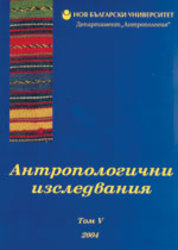Семейно конструиране на "проблемното" юношество
Family Constructs Causing "Problematic" Adolescent Behaviour
Author(s): Zlatka MihovaSubject(s): Anthropology, Education, Psychology, Communication studies, Sociology, Family and social welfare
Published by: Нов български университет
Keywords: family as a social institution;family functioning;
Summary/Abstract: The widely-spread concept of "storm and stress" as the norm during the period of adolescence has been revised by several contemporary epidemiological studies. The "universal adolescent" has been found to be emotionally stable, goal-oriented, socially competent and enjoying good family relationships. These findings raise the issue of seeking new explanations for problematic behaviour by adolescents.The aim of the presented study was to elicit systemic mechanisms causing "problematic adolescence". 25 families were involved. They were recommended to the author because of the adolescents’ behavioural problems, such as truancy from lessons, academic underachievement, conflicts with parents, spending long spells outside the home, etc. The assessment of their self-image (through the Self-Image Questionnaire) showed results within the norm for Bulgaria, conforming to the typical profile of the "universal adolescent". The analysis of the parental beliefs revealed a specific view of adolescence as a period of increased responsibility, high educational goals, and compliance to parents. Such psychological aspects of development as identity-formation, autonomy, interest in peer relationships etc., were either neglected, or negatively connoted. The parents’ own stories showed that they had had limited experience of these aspects themselves, and were still dependent on their parents. Stories of failures and illnesses made these parents particularly anxious and intolerant to behaviours interpreted as signs of parental malfunction. The developmentally adequate behaviour of the "universal" adolescent seen through the lens of these stories and beliefs was interpreted as deviant and calling for increased parental control. The adolescents reacted to the attempts for control by withdrawal in the peer group, which was interpreted as a further deviation. Thus a pattern of conflict-saturated relationships was established, which led to escalation of the "deviant" behavior.Therefore, "problematic adolescence" was construed as a result of the inability of the family system to tolerate the big difference in the meaning ascribed to adolescent behaviour.
Journal: Антропологични изследвания
- Issue Year: V/2004
- Issue No: 1
- Page Range: 119-142
- Page Count: 24
- Language: Bulgarian
- Content File-PDF

